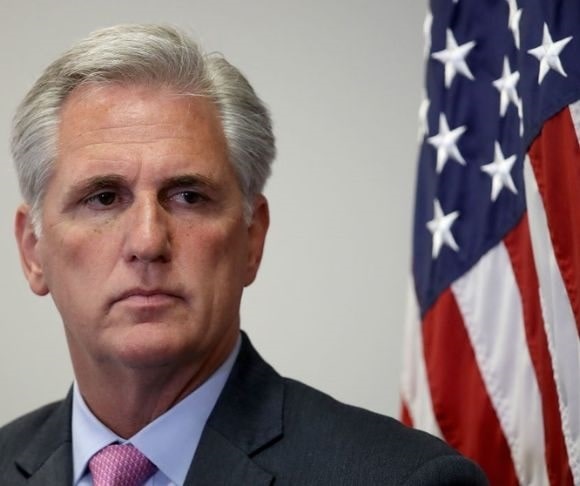If there was one thing that seemed a mortal lock as we approached November’s midterm elections, it was that Republicans would seize control of the US House of Representatives – likely by a comfortable margin – and Kevin McCarthy would be anointed as the new Speaker of the House. After all, he had long been preparing for the role as he rose through the ranks of leadership, culminating with his election as the party’s leader in the lower chamber in 2019.
But a funny thing happened on McCarthy’s seeming glide path to the top. What was supposed to be a 20 or 30-seat pickup turned into a mere nine seats. The resulting slimmer-than-slim majority provided an opening for a bloc of members of the House Freedom Caucus to leverage their suddenly crucial swing votes into a competing candidate from their own ranks, Rep. Andy Biggs (R-AZ), plus a set of demands that McCarthy would need to meet in return for their support. The most explosive of the demands, for obvious reasons, is the ability of any member to force a vote on removing the speaker. They are also demanding something which by all accounts should have long ago been required: at least 72 hours – as if that were nearly enough – between the release of a final bill’s text and a floor vote, plus an increase in the number of Freedom Caucus members on the House Rules Committee. Only the fact that this bloc within the 41-member caucus was in a position to affect the outcome was a surprise, not their opposition. McCarthy had long been labeled by a slice of liberty-centric conservatives as merely a tool of the encrusted GOP establishment, insufficiently committed to conservative principles.
Kevin McCarthy – Winner or Loser?
Of course, McCarthy and the Republicans’ ultimate bottom-line goal in 2022, the one they had to achieve under any and all circumstances, was securing a majority in the House, even by one vote. And thus, they achieved the minimum, shared control of Congress after two years in the wilderness. Whether a party controls the chamber by one seat or a hundred, it gets to control the gavel, the committees, and the agenda. But before the lower chamber of Congress can legislate, or do anything else, the very first item of business is the election of a new speaker. Nothing can happen until the leader is determined. And the hourglass is about to run down on a process that has ordinarily long since been signed, sealed, and delivered before voting actually takes place. Now, however, there is no resolution yet in sight.

Kevin McCarthy (Photo by Win McNamee/Getty Images)
It could be that both sides are simply playing hardball, or that one or both are unwilling to budge. And that is when a spectacle of untold magnitude – and embarrassment for the GOP – would threaten to unfold. It is all but certain that if Biggs or another member continues to challenge the presumptive speaker, no candidate could garner the necessary 218 votes on the initial ballot. Since Republicans will control only 221 seats, and at least five members have indicated unflagging opposition to him, the math is unforgiving for McCarthy if even a handful in his caucus refuses to deal. And then we could fully expect to see untold shenanigans by Democrats who also get to vote on what is, after all, the speaker for the entire House, not just the majority party. There has not been a second ballot for speaker in more than a century, but the same principle would apply as in a presidential nomination process. When we used to have party conventions without the pre-determined outcomes of today, the initial frontrunner would weaken with each passing ballot, ultimately opening the door for a dark horse who could somehow build a flash consensus as the process dragged on.
But all of this is a means to what end? Speaker of the House is a political, not ideological, position. It requires – in fact, is all about – building consensus among more than 200, um, healthy egos and accompanying agendas, and that’s before you even consider the rabid opposition. In the hard reality of Washington politics to which both former speakers Newt Gingrich and Paul Ryan can attest, ideologues or policy wonks do not generally succeed in a job that is more about herding cats than personally promoting any particular set of policies. In that regard, McCarthy might succeed because he is at heart a dealmaker, a career politician with all the plusses and minuses accompanying said occupation. He would hold a position that would play directly into his existing skill set, optimizing his assets while minimizing his perceived liabilities. If those who would thwart a clean process can identify someone who can hold together a fragile coalition more effectively than Kevin McCarthy, in this political wedding ceremony, they better be prepared to speak now or forever hold their peace.
Do you have an opinion about this article? We’d love to hear it! If you send your comments to [email protected], we might even publish your edited remarks in our new feature, LN Readers Speak Out. Remember to include the URL of the article along with your name, city, and state.
Please respect our republishing guidelines. Republication permission does not equal site endorsement. Click here.




































